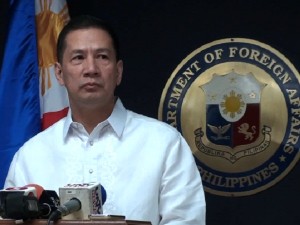Over 100 Filipinos still awaiting deportation from Japan—DFA
MANILA, Philippines—More than 100 Filipinos are being held at Japanese Immigration Bureau’s detention centers, after the deportation of 75 others over the weekend.
Filipinos comprise the largest group of foreign nationals held at these detention centers for being illegal aliens in Japan, according to the Department of Foreign Affairs.
The DFA has yet to be advised when Japan plans to undertake the next wave of deportation.
Filipino illegals account for the third largest number of over-stayers in Japan, next to South Koreans and the Chinese.
Some 75 Filipinos overstaying in Japan were deported over the weekend as the Japanese government began sending home immigrants lacking proper documents, the DFA said.
Article continues after this advertisementThe Japanese government deported the Filipinos—54 men, 13 women and eight children—through a chartered flight to Manila on July 6.
Article continues after this advertisementOn the flight were a Japanese immigration official, a Japanese doctor, a language interpreter and a Philippine Embassy representative, said DFA spokesperson Assistant Secretary Raul Hernandez.
“Foreign nationals who violate provisions of Japan’s immigration control act undergo deportation procedures. Those who refuse to consent to their deportation are detained in immigration centers,” Hernandez said in a press briefing.
“Filipinos with serious medical conditions and those who have existing family ties in Japan and currently cases filed in court were excluded from the deportation,” he said.
Clarifying that the Filipinos were not rounded up, Hernandez said the deportees were separately accosted and detained as part of Japan’s regular campaign against illegal immigrants.
He said they have been held at the deportation centers for quite some time but could not say for sure how long detention was for those deported or has been for those still being held. The DFA also had no details on the nature of the deportees’ travel to Japan.
Hernandez said Philippine Embassy officials in Tokyo readily provided assistance to the Filipinos who were sent home, including successfully negotiating with Japanese authorities the exemption of women and children from being handcuffed.
Japan also granted the Philippines’ request for the cuffs to be removed from the male deportees upon entry into Philippine air space.
“Upon learning of Japanese government’s decision to deport Filipino nationals who violated its immigration laws, the Philippine government, through our Embassy in Tokyo immediately engaged in dialogue with Japanese immigration officials to ensure the safety and welfare and the humane and dignified treatment of Filipino nationals during deportation,” said the DFA.
